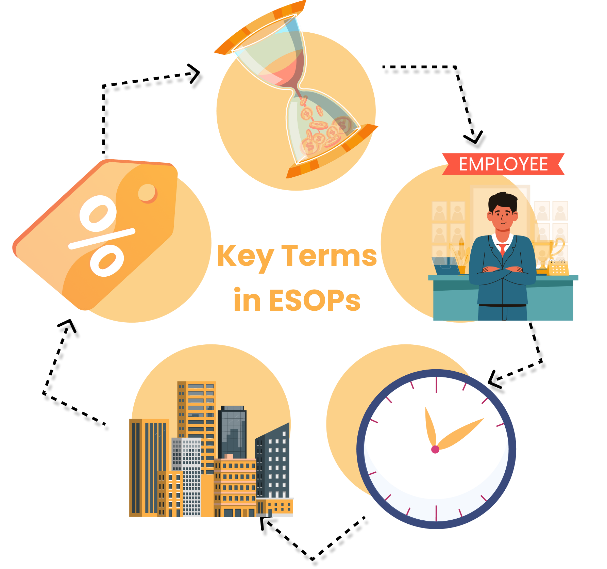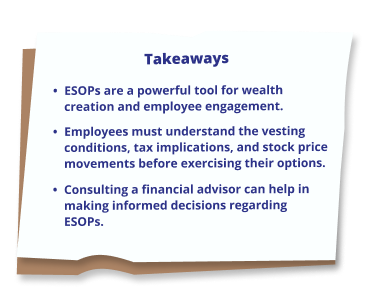Employee Stock Option Plan (ESOP): A Simple Guide for Retail Investors
Employee Stock Option Plan (ESOP): A Simple Guide for Retail Investors
What is an ESOP?
An Employee Stock Option Plan (ESOP) is a benefit scheme where companies offer employees the right to buy shares at a predetermined price after a specific period. It is a way to reward employees, align their interests with the company’s success, and improve motivation and retention.
Why Do Companies Offer ESOPs?
Companies provide ESOPs for several reasons:
Employee Retention : Employees stay longer to receive their stock options.
Performance Incentive : Employees are motivated to improve company performance, leading to higher stock value
Ownership Culture : Employees feel like stakeholders, fostering loyalty and commitment.
Alternative to Cash Compensation : Start-ups and companies with limited cash can use ESOPs as a reward mechanism

How Do ESOPs Work?
Grant of Options : The company gives employees the option (not obligation) to buy shares at a fixed price
Vesting Period : Employees must stay with the company for a specified time before they can exercise their options.
Exercise Period : After the vesting period, employees can purchase shares at the predetermined price.
Selling Shares : Once exercised, employees can sell shares in the open market, benefiting from price appreciation.
Key Terms in ESOPs
Stock Options : The right to buy shares in the future at a fixed price.
Vesting Period : The time an employee must wait before exercising options (minimum 1 year as per SEBI regulations).
Exercise Price (Strike Price) : The price at which employees can buy shares.
Exercise Period : The window during which employees can purchase shares after vesting.
Expiration Date : The deadline to exercise stock options before they become invalid.

ESOPs in India are regulated by:
SEBI (Share Based Employee Benefits and Sweat Equity) Regulations, 2021 for listed companies.
Companies Act, 2013 for unlisted companies.
Tax rules under the Income Tax Act, 1961, where employees are taxed at the time of exercising options and again when selling shares.
Process for Employees
Option Grant : The company offers stock options to eligible employees.
Vesting Period Completion : Employees meet the service duration requirement.
Exercise of Options : Employees purchase shares at the pre-decided price.
Selling Shares : Shares can be sold in the open market, subject to tax and lock-in rules.
Benefits for Employees:
Opportunity to own company shares at a lower price.
Potential for significant wealth creation if stock price increases.
Aligns employee growth with company success.
Risks for Employees:
If stock price falls, options may lose value.
Employees need to pay upfront to buy shares.
Taxes apply at the time of exercise and sale.
